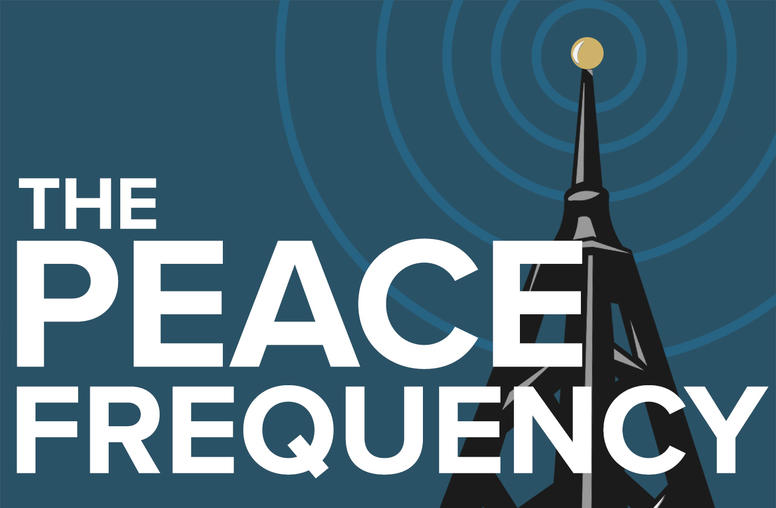Publications
Articles, publications, books, tools and multimedia features from the U.S. Institute of Peace provide the latest news, analysis, research findings, practitioner guides and reports, all related to the conflict zones and issues that are at the center of the Institute’s work to prevent and reduce violent conflict.
Question And Answer
Amid a Changing Global Order, NATO Looks East

Episode 51 - Meshack Simati
Our guest on this episode is USIP Peace Scholar, Meshack Simati, a Ph.D. candidate in political science at Georgia State University. His dissertation is titled, “The False Promise of the Judiciary in Reducing Election Violence among African Countries.” Together we explore the history of election violence in Kenya and other countries around the world. What is election violence? How does it impact the voting process and the outcome? What are the implication for the future? How do we prevent it?

Frank Aum on the North Korea Summit
Just days out from the historic U.S. – North Korea Summit, Frank Aum reflects on pitfalls that previous administrations struggled with, and shares his thoughts about the Trump administration’s approac

Scott Worden on the Cease-Fire in Afghanistan
A temporary cease-fire between the Afghan government and the Taliban to mark the end of Ramadan may offer an opportunity to pursue a more ambitious political solution to end the conflict in Afghanistan, says USIP’s Scott Worden. While there is a chance that the cease-fire—the first since the war began in 2001—will be fleeting, as cease-fires are fragile by nature, it is an important trust-building measure. Combined with Afghanistan’s neighbors recently expressing their desire for an end to the stalemate, the cease-fire could be the first step to a more enduring peace.

Steve Hege on Colombia’s Election
Following a peaceful run-off election in Colombia, Steve Hege shares his analysis on the victory of right-wing candidate Ivan Duque over leftist Gustavo Petro. At the top of Duque’s agenda, according to Hege, will be amending the peace accord with the FARC, resuming more aggressive drug eradication programs, increasing security, and strengthening the U.S.-Colombia relationship.

Susan Stigant on South Sudan
Can South Sudan—the world’s youngest country—find peace? USIP’s Susan Stigant discusses the country’s political crisis and how its exacerbated by the outgrowth of opposition groups, millions of displaced citizens, and other complex challenges to restoring stability. Nevertheless, Stigant explains that peace is possible with U.S. leadership.

Ambassador Bill Taylor on Russia and NATO
Ahead of the highly anticipated Trump-Putin meeting and the NATO summit in Europe later this month, Ambassador Taylor discusses the key issues that will be on the agenda at both, including Russian meddling in U.S. elections and Moscow’s aggressive actions in Europe as well as NATO members’ progress as it relates to U.S. concerns over burden-sharing.

Ezra Shearer on a Year as a Peace Teacher
After completing an academic year as one of four USIP Peace Teachers, Ezra Shearer discusses his experience engaging, empowering, and challenging students on how to mitigate conflict. Building negotiation and communication skills, says Shearer, a teacher at Sentinel High School in Missoula, Montana, is a critical life skill for students.

Susan Hayward on Advancing Religious Freedom
Following last week’s Ministerial to Advance Religious Freedom at the U.S. Department of State, Rev. Susan Hayward discusses the worldwide uptick in religious discrimination in recent years—which particularly impacts minority communities—and how religion shapes conflict and peace around the world.

Mona Yacoubian on Syria
As the Assad regime consolidates power across Syria, Mona Yacoubian says that regime change is increasingly unlikely seven years into the civil war. But, the conflict remains complex, as the U.S. and coalition forces continue to work to eradicate remnants of ISIS and Israel becomes increasingly concerned over Iran’s military presence in neighboring Syria.

Payton Knopf on the Geopolitical Tensions in the Red Sea
Both the eastern and western shores of the Red Sea increasingly function as a common political and security arena in which the U.S. has significant interests, including the free flow of $700 billion in commerce and competition for influence from external powers like China and Iran. To address the region’s interlinked challenges requires a comprehensive U.S. strategy, says Payton Knopf.